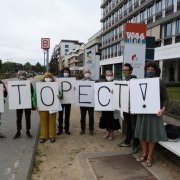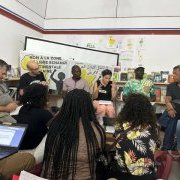24-Nov-2023
Africa Intelligence
The battle over block OPL 245 between Nigeria and Italian major ENI was suspended on 16 November.
24-Nov-2023
Global Justice Now
Notes from the Energy Charter Treaty Conference reveal plans for the controversial Energy Charter Treaty to expand to more oil-producing countries.
21-Nov-2023
Cadence Minerals
Cadence Minerals and its subsidiary REM Mexico Limited have issued a request for consultations and negotiations to the Government of Mexico under the United Kingdom-Mexico Bilateral Investment Treaty.
20-Nov-2023
Mining Weekly
Mining corporations have taken steps to issue a notice and dispute and request for negotiations to the Ethiopian government over concerns at measures taken against Abyssinian’s investments in the Kenticha lithium and tantalum project in the country.
16-Nov-2023
bilaterals.org
Highlights from the workshop organised in Marrakesh by Attac Maroc, bilaterals.org, CADTM Africa, GRAIN and the Tunisian Observatory of Economy.
13-Nov-2023
ImpACT International
Removing ISDS mechanisms within the CPTPP is a good start, but Britain must protect itself and other nations from its own corporate interests by removing all ISDS mechanisms.
3-Nov-2023
Public Citizen
The groups argue that removing ISDS — which has prioritized corporate rights over those of governments, people, and the planet — is needed to protect policies necessary for a clean energy transition.
3-Nov-2023
Euromaidan Press
DTEK Group prevails in The Hague case, securing a $267 million award from Russia for the confiscation of assets in occupied Crimea.
2-Nov-2023
Inter Press Service
Governments the world over are worried about investor-state dispute settlement (ISDS) rules. These allow foreign investors to sue them for billions over new laws or policies reducing their profits.
30-Oct-2023
Corporate Knights
First Quantum notified the government of its intent to initiate arbitration under the Canada-Panama Free Trade Agreement in 2022, during the contract’s negotiation process.









